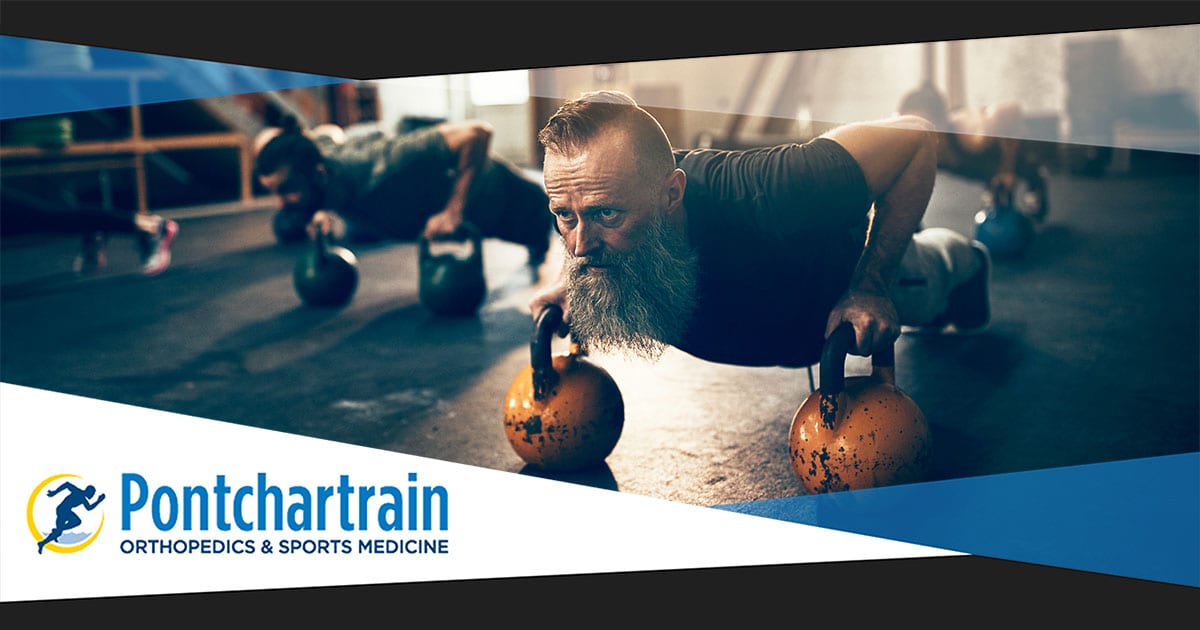5 Tips for the Active Dad

One of the hardest things for aging athletes to accept is a diminishing performance as the years advance. Active dads who played competitive sports in the past, struggle to see their new performance levels as the new reality.
Today, sports medicine for older athletes includes a comprehensive approach to keeping you working out or participating in your favorite sport as long as you want.
Who Are Today's Older Athletes?
Older or senior athletes are amateur athletes over the age of 40 who are participating in sports. They are still interested and able to compete in pretty high-level sports and have a history of exercise. Older athletes generally have a background in sports, are usually competitive, prefer to be active, and are making concerted efforts to continue playing the sport they’ve always loved. According to the US Bureau of Labor Statistics, people aged 25 to 54 accounted for most of those practicing yoga (61.9 percent), running (56.3 percent), and hiking (54.9 percent). As this population grows, so does the demand for sports medicine for the older athlete.
Changes that Impact the Athlete
A lot of changes take place as men age, but some of the key areas specifically affecting older athletes are:
1. breathing capacity
2. maximum heart rate
3. bone strength
4. muscular strength
5. flexibility
With these changes, come special considerations when playing sports. The more aware older athletes are of the changes in their bodies as they age, the more they can tailor their activity to fit their new abilities and limitations.
5 Tips - Sports Medicine for Older Athletes
1. Create a Training Program
Here at Pontchartrain Orthopedic and Sports Medicine, we can help you create a training program that’s tailored to your needs and interests. We’ll assess your strengths and weaknesses and form exercises to enable you to meet your goals while at the same time keeping injury down to a minimum. Sports medicine for the older athlete is based on an individualized training program.
2. Take Supplements
Along with eating well-balanced meals, supplements are a great way to fill in any nutritional gaps. Because inflammation is a concern for the older athlete, Omega 3, 6, and 9 fish oils are an excellent way to counteract any inflammation. Taking supplements consistently is an important part of the older athlete’s lifestyle.
3. Pump Up the Volume
Instead of keeping the duration of workouts or sports activities the same, increase the intensity. Higher intensity over shorter duration will help stimulate testosterone release and increase muscle mass. Trying to extend the duration of a work out of sports activity is difficult as we age because we don’t have the stamina we had in the past.
4. Create Time to Recover
Now more than ever, it’s important to recover and give your body time to heal from the strain of playing or working out. Getting enough sleep and eating right after exertion is crucial to feeling better the next day and being ready for the next push.
5. Be Sure to Hydrate
Hydration before and after activity is necessary for older athletes to be able to perform our best. As we age, we sometimes lose a sense of thirst; also some medications cause us to be thirsty. Drinking plenty of water keeps us energized and prevents fatigue.
Accept Change, Not Failure
It’s important to accept the changes in your body as you age, but getting older does not mean you can’t be active. Older athletes can still bring it on the field! As Dr. Joseph L. Finstein, MD said in his blog post 10 Tips to Help Mom Stay Healthy, " the less we focus on our needs, the less vibrant and healthy we will become."
Follow our sports medicine for older athlete tips. Here at Pontchartrain Orthopedic and Sports Medicine, our practice is designed to keep athletes of every age competing at the highest possible level, injury free. The longer you participate in the sports you love, the happier and healthier you’ll be. Contact us for more information about our sports medicine services today.
This website is not designed to and does not provide medical advice, medical diagnosis, professional opinion, treatment or services to you or any other person. Through this website and links to other websites, Pontchartrain Orthopedics & Sports Medicine provides general information for educational purposes only. The information provided in this website, or through links to other sites, is not a substitute for medical care. You should not use this information in place of a visit, call, consultation or the advice of your healthcare provider. Pontchartrain Orthopedics & Sports Medicine is not liable or responsible for any advice, course of treatment, diagnosis or any other information, services or product you obtain through this site.
